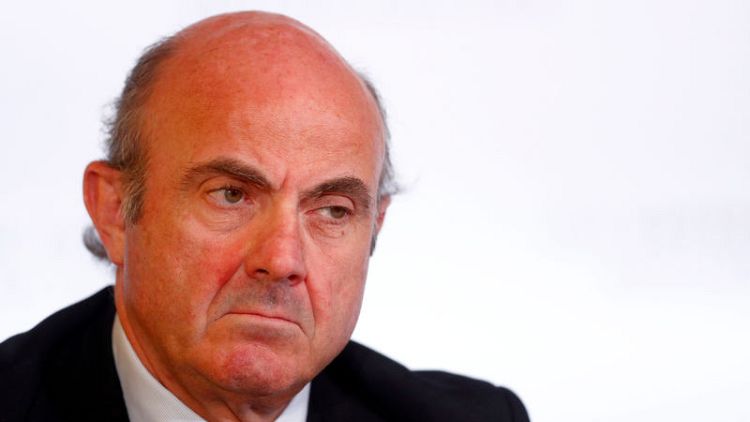LUXEMBOURG (Reuters) - The European Union needs clearer rules against money laundering that would apply equally to all EU countries, European Central Bank Vice President Luis de Guindos said on Tuesday, but several governments, including Germany, urged caution.
The 28-nation bloc is grappling with a string of high-profile cases of money laundering at banks in several member states, including Estonia, Denmark, the Netherlands, Luxembourg, Malta and Latvia.
"A higher level of harmonisation of the applicable rules in the form of a regulation should be considered", de Guindos told EU finance ministers during a public debate in Luxembourg.
An EU regulation is directly applicable in all EU countries, but EU rules against money laundering are currently defined in directives which give governments broad leeway in their application. This has resulted in different levels of enforcement and gaps in the EU framework.
However, EU governments have long been reluctant to give away national powers to monitor banks and fight crime.
Many of them confirmed on Tuesday their scepticism to de Guindos's appeal and to a European Commission's plan to slightly strengthen common supervision against money laundering.
Germany, the largest country of the bloc, asked for more time in changing the current framework.
Replying to de Guindos's proposal on transforming directives into a regulation, Joerg Kukies, Germany's state secretary at the finance ministry said: "We think this is not an easy thing to do in the short term but something we would be very open to discuss".
The Netherlands, Luxembourg, Estonia and Finland said more time was needed to decide on which changes would be needed, confirming the sceptical line they held in closed-door meetings.
Hungary opposed any proposal that would reduce national powers.
(Reporting by Francesco Guarascio; editing by Philip Blenkinsop)



